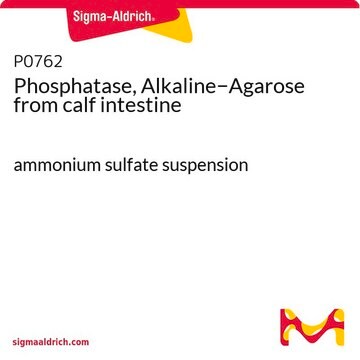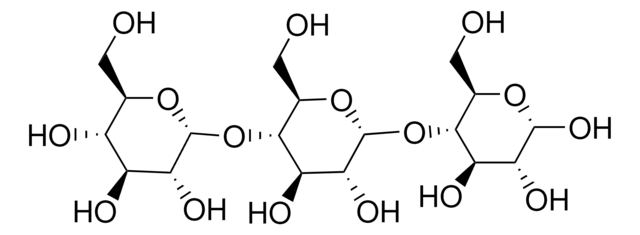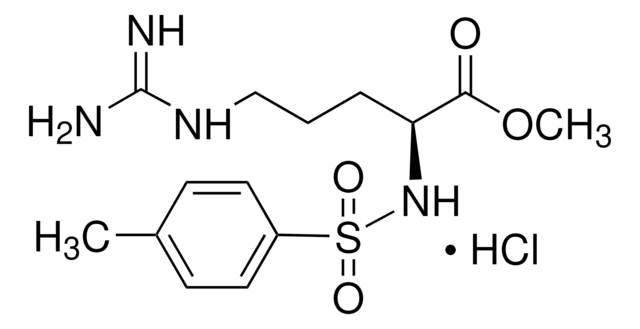T5783
2,3,4,6-Tetra-O-acetyl-β-D-glucopyranosyl isothiocyanate
for chiral derivatization, LiChropur™, ≥98.0% (HPLC)
Synonym(s):
GITC
About This Item
Recommended Products
grade
for chiral derivatization
Quality Level
Assay
≥98.0% (HPLC)
quality
LiChropur™
technique(s)
HPLC: suitable
mp
114-116 °C (lit.)
storage temp.
2-8°C
SMILES string
CC(=O)OC[C@H]1O[C@@H](N=C=S)[C@H](OC(C)=O)[C@@H](OC(C)=O)[C@@H]1OC(C)=O
InChI
1S/C15H19NO9S/c1-7(17)21-5-11-12(22-8(2)18)13(23-9(3)19)14(24-10(4)20)15(25-11)16-6-26/h11-15H,5H2,1-4H3/t11-,12-,13+,14-,15-/m1/s1
InChI key
WOWNQYXIQWQJRJ-UXXRCYHCSA-N
Looking for similar products? Visit Product Comparison Guide
Related Categories
General description
Application
Packaging
Legal Information
Signal Word
Danger
Hazard Statements
Precautionary Statements
Hazard Classifications
Eye Irrit. 2 - Resp. Sens. 1 - Skin Irrit. 2 - Skin Sens. 1 - STOT SE 3
Target Organs
Respiratory system
Storage Class Code
11 - Combustible Solids
WGK
WGK 3
Flash Point(F)
Not applicable
Flash Point(C)
Not applicable
Personal Protective Equipment
Certificates of Analysis (COA)
Search for Certificates of Analysis (COA) by entering the products Lot/Batch Number. Lot and Batch Numbers can be found on a product’s label following the words ‘Lot’ or ‘Batch’.
Already Own This Product?
Find documentation for the products that you have recently purchased in the Document Library.
Customers Also Viewed
Our team of scientists has experience in all areas of research including Life Science, Material Science, Chemical Synthesis, Chromatography, Analytical and many others.
Contact Technical Service


![Guanosine 5′-[β,γ-imido]triphosphate trisodium salt hydrate ≥85% (HPLC), powder](/deepweb/assets/sigmaaldrich/product/structures/204/494/05808804-1ca7-44bf-b6c5-d4934dc7cb85/640/05808804-1ca7-44bf-b6c5-d4934dc7cb85.png)







